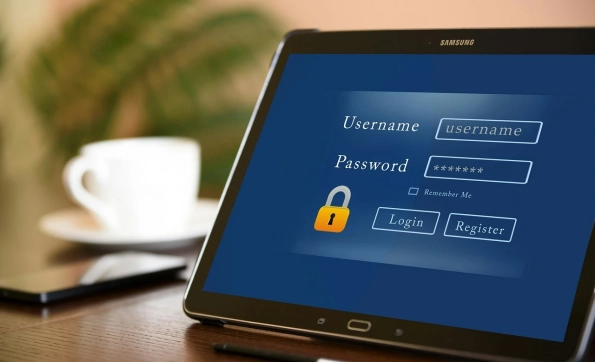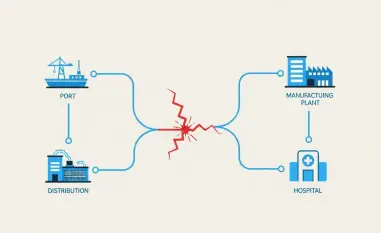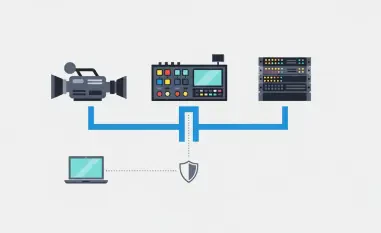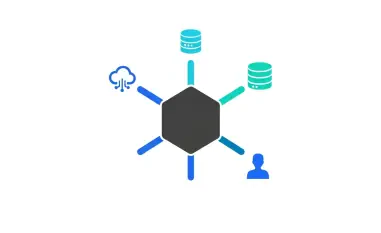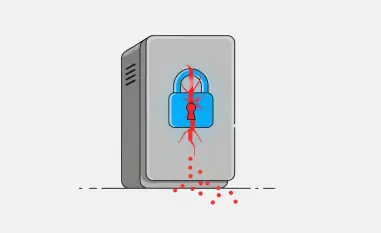The digital world is expanding rapidly, and with it, the necessity for robust cybersecurity measures. As more aspects of modern life, such as social interactions, business operations, healthcare, and banking, increasingly rely on the internet, the threat of cybercrime becomes ever more prominent. To ensure minimum security standards across the digital landscape, the federal government must implement regulations mandating basic protective measures like strong passwords and multifactor authentication (MFA) for all companies with a web presence.
The Alarming Rise in Cybercrime
Escalating Costs of Cybercrime
Over the past decade, cybercrime has surged dramatically. Global cybercrime costs are projected to reach $10.5 trillion annually by 2025, up from $3 trillion in 2015. These costs encompass not only stolen money and intellectual property but also expenses related to recovery following data breaches. In 2022, the Federal Bureau of Investigation (FBI) recorded a record number of cybercrime complaints, with U.S. losses exceeding $10 billion alone. The financial impact is staggering and illustrates a swiftly escalating threat with the potential to destabilize economies.
Particularly alarming is how diverse and pervasive these threats have become. Cybercriminals employ a wide array of techniques from phishing schemes to sophisticated ransomware attacks that can paralyze entire networks. The scale and complexity of these cybercrimes necessitate a response commensurate with the risk they pose. It’s clear that without robust measures, businesses and consumers alike will continue to face significant harm. This financial burden underscores the urgent need for a coordinated and comprehensive approach to cybersecurity.
Vulnerability of Small and Medium-Sized Businesses
Businesses of all sizes are prime targets for hackers, but small and medium-sized businesses (SMBs) are particularly vulnerable due to their lower levels of cybersecurity expertise and investment. For SMBs, the dire consequences of cyberattacks can include financial ruin and the erasure of customer trust. Breaches often lead to significant customer loss, costly lawsuits, and lasting reputational damage that can be especially difficult for smaller enterprises to recover from.
SMBs often lack the resources to invest in cutting-edge cybersecurity defenses and instead, they may focus on immediate business operations, leaving their digital assets exposed. This vulnerability can lead to devastating outcomes, as seen in numerous high-profile breaches. For instance, these businesses might serve as weak points in larger networks, allowing hackers to gain access to more extensive systems. The need to mandate basic security measures, like implementing strong passwords and MFA, is clear, providing these smaller businesses with a level of protection that can mitigate many common threats.
The Need for Federal Regulations
Fragmented Cybersecurity Landscape
The current cybersecurity landscape is fragmented, with some businesses heavily investing in cybersecurity while others do the bare minimum. This creates vulnerabilities that can be exploited to access extensive networks and impact entire supply chains. A prime example of this fragmented landscape is the 2013 Target data breach, where poor security practices at a small HVAC subcontractor led to massive exposure of credit card information belonging to over 40 million customers. This incident underscores how interconnected businesses are and how a single vulnerability in one part of the supply chain can have catastrophic consequences for major corporations.
The disparity in cybersecurity measures across different organizations enhances the risks involved. Some companies may follow stringent cybersecurity protocols, ensuring their systems are robust and resilient to attacks. Conversely, others may overlook even the most basic protections due to either a lack of awareness or resources. This uneven landscape not only leaves weaker targets exposed but also threatens to affect stronger entities indirectly through vulnerable links. Federal regulations can standardize these practices, ensuring a uniform level of security that protects all parts of the network.
Foundational Protections: Strong Passwords and MFA
Greenberg argues that regardless of the varying needs and advanced cybersecurity practices across industries, certain foundational protections like strong passwords and MFA should be universally required. Passwords serve as the first line of defense against unauthorized access, but poor password hygiene is responsible for 81% of hacking-related breaches. Many users still rely on weak or reused passwords, making them easy prey for cybercriminals. Enforcing strong password requirements can significantly reduce vulnerabilities.
Moreover, multifactor authentication (MFA) enhances security by requiring users to present two or more pieces of evidence—such as a password, a smartphone, or biometric data—to verify their identity. MFA can substantially mitigate risks by adding layers of security that are harder for attackers to compromise. Even if passwords are stolen, the additional authentication step acts as a formidable barrier, greatly reducing the likelihood of unauthorized access. The implementation of MFA, according to Microsoft, blocks 99.9% of account attacks, making it one of the most effective cybersecurity measures available.
Benefits of Federal Cybersecurity Regulations
Protection of Consumers and Businesses
By implementing strong passwords and MFA, companies can reduce the risk of hacking and provide greater peace of mind for consumers, resulting in fewer costly breaches and lawsuits. The Ponemon Institute and IBM have reported that the average cost of a data breach in 2024 is $4.88 million per incident. However, this cost could be dramatically reduced through the use of MFA, which would help prevent unauthorized access even if passwords are compromised. The protection of sensitive data not only shields companies from financial losses but also maintains consumer trust.
Moreover, the consistent requirement of robust cybersecurity measures would lead to fewer successful attacks, creating a more secure digital environment. Consumers would feel safer engaging in online transactions, thus boosting the overall economy. Additionally, businesses would save significantly on what they would otherwise need to spend on post-breach recovery efforts, legal battles, and fines. The cumulative effect of these savings and increased consumer confidence would foster a more resilient digital marketplace.
Leveling the Playing Field
Federal regulations would ensure that all businesses, regardless of size, adopt essential security measures, reducing the incentive for hackers to target small, unprotected businesses as entry points to larger companies. Setting minimum security standards would encourage businesses to invest in cybersecurity research and development to meet these benchmarks. This investment could drive innovation, leading to the creation of better technologies to protect against evolving cyber threats, thereby enhancing overall security.
Furthermore, a standardized regulatory environment could simplify compliance processes, as businesses would follow uniform guidelines instead of navigating a patchwork of state and industry-specific regulations. This would ease the burden on companies, particularly SMBs, and allow them to allocate resources more efficiently. By leveling the playing field, all organizations would be better equipped to fend off cyber threats, creating a more stable and secure digital economy. This collective approach ensures that everyone shares the responsibility and benefits from a safer cyber ecosystem.
Global Competitiveness and Cybersecurity
The European Union’s GDPR
The European Union’s General Data Protection Regulation (GDPR) has already set high standards for data protection, and U.S. businesses must be prepared to compete in a global economy that increasingly values data privacy and security. Without similar federal regulations, American companies might fall behind in global markets that prioritize cybersecurity. GDPR has forced European businesses to adopt rigorous data protection measures, providing a competitive edge in privacy-conscious markets.
American businesses operating without stringent federal cybersecurity guidelines risk being perceived as less trustworthy by global partners and consumers. This perception can affect trade, partnerships, and customer retention, putting U.S. companies at a disadvantage. Implementing federal regulations similar to GDPR would not only protect American data but also bolster the global competitiveness of U.S. firms. Adopting high standards of data security is not just a regulatory necessity but a strategic advantage in a world where data privacy concerns are paramount.
Encouraging Innovation in Cybersecurity
Setting minimum security standards would encourage innovation in cybersecurity, as businesses would invest more in cybersecurity research and development to meet the required benchmarks. This could potentially lead to better technologies to protect against emerging threats, ensuring that U.S. businesses remain competitive on the global stage. Increased focus on cybersecurity innovation would foster development in next-gen security solutions, like artificial intelligence-driven threat detection and advanced encryption technologies.
Federal regulations can act as a catalyst for advancements, pushing companies to find more efficient and effective ways to safeguard their data. This proactive approach would not only address current vulnerabilities but also anticipate future challenges. By staying ahead of cybercriminals through continuous development, American businesses can maintain a strong defensive posture. The resulting technological breakthroughs could position the U.S. as a leader in cybersecurity, driving economic growth through both domestic security enhancements and international exports of cutting-edge technologies.
The Effectiveness of MFA
MFA as a Critical Security Measure
Multifactor authentication (MFA) is highly effective in blocking 99.9% of account attacks, according to Microsoft. Despite its proven effectiveness, a 2021 survey by LastPass revealed that only 57% of businesses used MFA for their employees. This statistic is alarming because it indicates that nearly half of businesses are not taking advantage of a readily available and highly effective security measure. The implementation of MFA can significantly reduce unauthorized access, even if passwords are stolen.
The low adoption rate of MFA highlights a critical need for federal regulations to mandate its use across all businesses with a web presence. Introducing such mandates would encourage widespread implementation, thereby fortifying the digital defenses of countless organizations. As cyber threats grow more sophisticated, relying solely on passwords is increasingly insufficient. MFA provides an essential additional layer of security, making it far more challenging for attackers to breach systems. Its effectiveness lies in requiring users to verify their identity through multiple methods, thus adding a vital barrier against cyber intrusions.
MFA Compared to a Seatbelt
The digital world is expanding rapidly, and with it comes the growing need for strong cybersecurity measures. As more areas of our everyday lives, including social interactions, business operations, healthcare, and banking, increasingly depend on the internet, the threat posed by cybercrime has never been more significant. To safeguard the digital space, it is crucial for the federal government to enforce regulations that mandate basic protective measures for all companies with an online presence. Essential security measures, such as implementing strong passwords and deploying multifactor authentication (MFA), should be compulsory to establish a baseline level of protection. These regulations would help to mitigate the risks associated with cyber threats and ensure that both individuals and businesses are less vulnerable to attacks. By making these protective measures mandatory, we can strive toward a safer and more secure digital environment for everyone, thus reducing the overall incidence of cybercrime and enhancing the trustworthiness of online activities.
